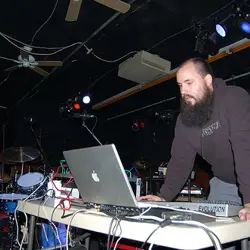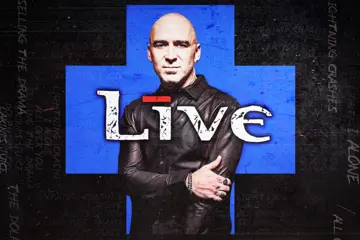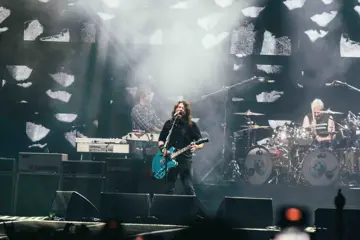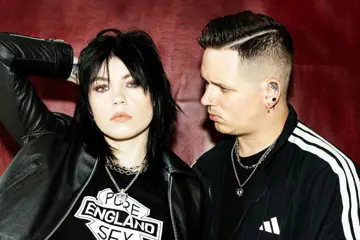 Keith Fullerton Whitman
Keith Fullerton WhitmanBoston electronic manipulator Keith Fullerton Whitman has a vast and interesting body of work that veers from harsh sonic IDM manipulations to more expansive realms. Such experimentalism is part of the journey of the road less travelled.
“My outlook when connecting to the world via music is largely positive,” Whitman maintains. “I view working on music as a kind of voyage, a way to break free from the routines and responsibilities of everyday life. It's pure escapism. This is why I tend to gravitate toward less-popular areas of music. Who wants to take a vacation to Los Angeles or Miami? Jakarta, Morocco, Trondheim – such places make life more interesting and more of a challenge, farther outside any comfort zone.”
Whitman started out at college doing computer music studies, an endeavour that he sees as an revelatory moment in his life.
“That time influenced me utterly and wholly,” he recalls. “I started very young, making music on computers, even before I picked up an instrument. Every single piece of music I created between the ages of 15 and 35 involved a computer in some way – it's only the last five years that I've really broken free from them. Whilst much of the process surrounds electronic communication of some sort, the actual spark these days is always a solitary event, usually while standing in front of a computer-free electronic musical instrument.”
Whilst many creative artists use some concept or vision as a starting point, Whitman extrapolates from his unorthodox views through subconscious investigation of the unique.
“These days making music is purely exploratory. Maybe there's an adherence to a certain perceived formlessness, an avoidance of regular rhythms and meter. This tendency is purely me, in every way. I often change my gait so that I'm not walking at the same pace. I think that would drive me crazy; the same routes, day in, day out.”
Don't miss a beat with our FREE daily newsletter
That said, Whitman has tackled a wide variety of sonic boundaries, either under his own moniker or as a range of other projects (most notably Hrvatski), and he's quick to espouse the beauty of the search for meaning via music.
“Music-making, in its various guises, is a series of acts from which I derive great pleasure,” he tells. “Ultimately the music I create would be successful in conjuring a wide range of human emotions. Frustration, anger, yes… but also peace, closure and calm. Sometimes a manic energy is found, at others a soporific calm. The trick is to summon these reactions with a relatively simple tool-set.”
At one time, particularly throughout the '90s, dance music was often seen as a generic, even archaic movement. Yet like most other genres in musical history, the world keeps on turning.
“Dance music is cyclical,” Whitman asserts. “Personally, I have a great love affair with the real stuff – the American Afro and Latin-futurist Chicago, Detroit and Miami waves. I was heavily into the post-second summer of love UK stuff through the mid-to-late-'90s breakcore wave. After that it became a blur, lots of watering-down of genres, mixing incompatible influences – diluting it, essentially. Occasionally something would pop up, but now that the internet is so accessible to everyone, I don't think there'll be much new and unique music coming out. Unless the technology really changes. I'm waiting for the first Google goggles album myself.”
Whitman is performing as part of MONO, the sound/new-music performance project curated by local purveyors of global sounds Room40 and the inimitable Lawrence English, someone that Whitman has a great affinity with.
“He is one of a kind, that's for sure. The MONO program this year looks impeccable, with so many cornerstone artists that most likely wouldn't come to Australia without his curatorial sensibilities.”















